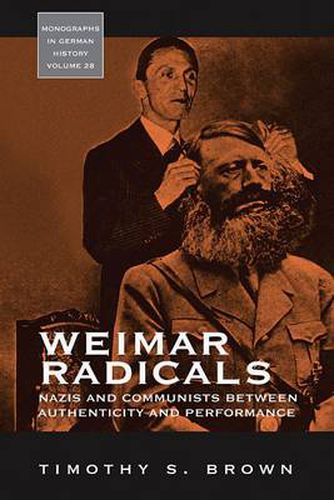Readings Newsletter
Become a Readings Member to make your shopping experience even easier.
Sign in or sign up for free!
You’re not far away from qualifying for FREE standard shipping within Australia
You’ve qualified for FREE standard shipping within Australia
The cart is loading…






Exploring the gray zone of infiltration and subversion in which the Nazi and Communist parties sought to influence and undermine each other, this book offers a fresh perspective on the relationship between two defining ideologies of the twentieth century. The struggle between Fascism and Communism is situated within a broader conversation among right- and left-wing publicists, across the Youth Movement and in the National Bolshevik scene, thus revealing the existence of a discourse on revolutionary legitimacy fought according to a set of common assumptions about the qualities of the ideal revolutionary. Highlighting the importance of a masculine-militarist politics of youth revolt operative in both Marxist and anti-Marxist guises, Weimar Radicals forces us to re-think the fateful relationship between the two great ideological competitors of the Weimar Republic, while offering a challenging new interpretation of the distinctive radicalism of the interwar era.
$9.00 standard shipping within Australia
FREE standard shipping within Australia for orders over $100.00
Express & International shipping calculated at checkout
Exploring the gray zone of infiltration and subversion in which the Nazi and Communist parties sought to influence and undermine each other, this book offers a fresh perspective on the relationship between two defining ideologies of the twentieth century. The struggle between Fascism and Communism is situated within a broader conversation among right- and left-wing publicists, across the Youth Movement and in the National Bolshevik scene, thus revealing the existence of a discourse on revolutionary legitimacy fought according to a set of common assumptions about the qualities of the ideal revolutionary. Highlighting the importance of a masculine-militarist politics of youth revolt operative in both Marxist and anti-Marxist guises, Weimar Radicals forces us to re-think the fateful relationship between the two great ideological competitors of the Weimar Republic, while offering a challenging new interpretation of the distinctive radicalism of the interwar era.